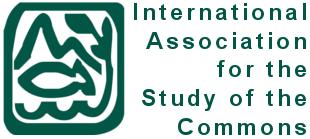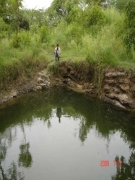Common Property Resources
Water security vs national security published in Third Concept September 2010 : Countries that share a river face a higher probability of engaging in military disputes
Posted on 28 Sep, 2010 10:15 AMThere has been growing public and policy preoccupation in recent years with potential climate impacts on water security in the wake of the worsening risk of global warming. In 1991, then–UN secretary general Boutros Boutros-Ghali pronounced that “the next war will be fought over water, not politics.” In 2001, Kofi Annan warned that “fierce competition for fresh water may well become a source of conflict and wars in the future.” And present UN secretary general Ban Ki-Moon has argued that the ongoing Darfur crisis grew at least in part from desertification, ecological degradation, and a scarcity of resources, foremost among them water. Apart from this chorus of concern, many policy scholars have asserted that, as population growth and economic development raise pressures on demand and environmental pressures degrade supplies, resource scarcities could precipitate violent international conflicts, with shared rivers an especially dangerous flashpoint.
Case studies on water quality - A presentation by ACWADAM
Posted on 25 Sep, 2010 10:19 AMThis presentation by ACWADAM deals with monitoring of water quality in a watershed. It describes the process of going about conducting a hydrogeological study of the watershed, right from the study of the basic geology to the importance of the quality of groundwater in the watershed. The main hydrogeological provinces of India are described - (a) Hard rock regimes: Crystalline rocks, Volcanic (Deccan basalt), (b) Alluvial regimes, and (c) Consolidated sedimentary regimes: Soft sedimentary, Hard sedimentary.
Integrated Data Management Systems using Geographic Information Systems – A presentation by ACWADAM
Posted on 21 Sep, 2010 11:25 PMThis presentation by ACWADAM deals with integrated data management using Geographic Information Systems. A Geographic Information System (GIS) integrates hardware, software, and data for capturing, managing, analyzing, and displaying all forms of geographically referenced information.
The deepest cut: Political ecology in the dredging of a new sea mouth in Chilika lake - Orissa (India)
Posted on 21 Sep, 2010 09:19 AMThis paper published in the journal Conservation and Society reassesses/debates the decision taken by the government to dredge a new sea mouth in the Chilika Lake in Orissa, India, which was based on Geographical Information Systems (GIS) studies.
The paper argues that decisions such as these need to be understood and evaluated by taking into consideration not only the underlying technical aspects, but by also exploring the political and historical contexts in which decisions are taken.
Earth System: Interactions Part II – A presentation by ACWADAM
Posted on 20 Sep, 2010 06:43 AMThis presentation by ACWADAM on earth system deals with the interactions between the four elements that make up this system. The complexity of the earth system, in which spatial and temporal variability exists on a range of scales, requires that an organized scientific approach be developed for addressing the complex, interdisciplinary problems that exist.
The myth of flood controls - A note by Dinesh Kumar Mishra
Posted on 18 Sep, 2010 04:41 PMIn the light of the recent major floods in river Yamuna, the enclosed article that deals with the question and futility of man made structures like dams and embankments to control floods may be found useful.
But it is unfortunate that even this otherwise very insightful article does not reflect anywhere on the fact that the floods in monsoon months are natural events and should be acknowledged and planned for accordingly.
There is a need to better understand the phenomenon of floods and not to treat them as some kind of natural calamity requiring artificial man made safeguards.
It may be noted that Dr D K Mishra who has studied the floods in river Kosi for decades has been making these points for many years now. It is necessary to heed to people like him if we do not wish to invite more trouble in future.
Call for papers for national seminar on “Natural Resources and Economic Development”, Indore
Posted on 18 Sep, 2010 04:03 PM
Transparency demanded in a letter to Jairam Ramesh on Polavaram Project - Himanshu Thakkar
Posted on 04 Sep, 2010 10:43 AM![]()
From:
Himanshu Thakkar
South Asia Network on Dams, Rivers & People,
c/o 86-D, AD block, Shalimar Bagh,
Delhi,
To: Shri Jairam Ramesh
Union Minister of State for Env and Forests (IC), New Delhi
Respected Sir,
I have just seen your letter dated Aug 18, 2010 to Orissa Chief Minister on the aboves subject, uploaded yesterday on MEF website.
- Your letter says that the Forest Clearance has been given to the Polavaram Project on July 28, 2010 is subject to the condition, "... no submergence and displacement of people including STs take place in Orissa and Chhattisgarh...". However, this condition is in complete contradiction with the environment clearance given by your ministry on Oct 25, 2005, which says in para 2, "Total 1,93,35 persons are likely to be affected by this project, out of that 1,75,275 persons in Andhra Pradesh and 6,316 persons from Orissa and 11,766 are from Chattisgarh." It is clear the condition of no submergence and displacement on Orissa and Chhattisgarh, stated in your letter, in the Tribal Development Ministry's condition, and in the forest clearance letter is in complete contradiction with the environment clearance given by you. One of them have to be cancelled due to this contradiction, we would like to know, which one would be cancelled.
13th Biennial Conference of the International Association for the Study of the Commons (IASC), Hyderabad
Posted on 03 Sep, 2010 03:41 PM13th Biennial Conference of the International Association for the Study of the Commons (IASC)
Theme: "Sustaining Commons: Sustaining Our Future"


Organizers:
- International Association for the Study of the Commons (IASC)
- Foundation for Ecological Security (FES)
Venue: Hyderabad, India.
Description:
The 13th Biennial Conference of the International Association for the Study of the Commons (IASC) will be held in Hyderabad, India from January 10th to 14th, 2011. The Conference is being held in South Asia for the first time; and in a departure from the past, will be hosted by a practitioner organization - Foundation for Ecological Security (FES).
Pani Panchayat: A model of groundwater management – A presentation by ACWADAM
Posted on 25 Aug, 2010 08:20 AM The presentation by ACWADAM deals with Pani Panchayats as a model of groundwater management.
The presentation by ACWADAM deals with Pani Panchayats as a model of groundwater management.
Pani Panchayat is the name first given to a movement by Mr. Vilasrao Salunke for motivating farmers of Naigaon village of the drought-prone Purandhar taluka of Maharashtra in 1974. The government's inability to deal with the drought situation prompted him to take a 40 acre land on lease from the village temple trust and develop a recharge pond in the recharge area of the village, a dug well in the discharge zone and a lift irrigation system.
Farmers got impressed with the results demanding a scale up of the experiment leading to the setting up of Gram Gaurav Pratisthan (GGP) through which the work was expanded to encompass both groundwater and surface water management.




